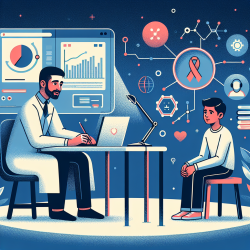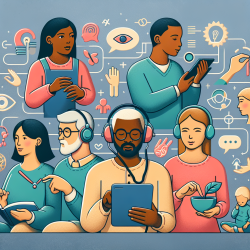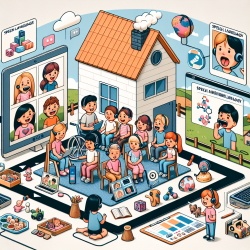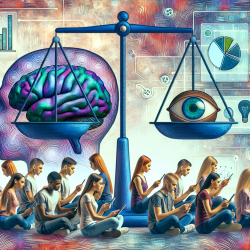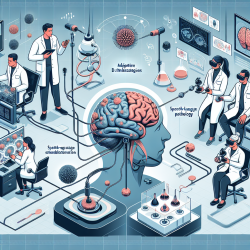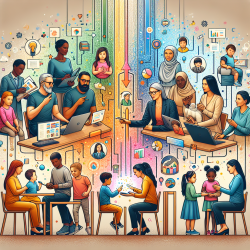Introduction
The COVID-19 pandemic has had profound impacts on mental health globally. A recent study, "Psychosocial Impact of COVID-19 Pandemic in Libya: A Cross-Sectional Study," provides valuable insights into the psychological and social burdens experienced by the Libyan population during the pandemic. As practitioners, understanding these impacts can guide us in tailoring interventions to improve mental health outcomes.
Key Findings from the Study
The study revealed increased levels of stress, depression, and sleep disturbances among the Libyan population, particularly among young females aged 18-29. The research utilized validated scales such as the Perceived Stress Scale, PROMIS Depression Scale, and PROMIS Sleep Disturbance Scale to measure these variables. Notably, females reported higher stress and depression levels compared to males, and younger age groups showed lower self-efficacy scores.
Implications for Practitioners
These findings underscore the need for targeted mental health interventions. Practitioners can leverage this data to design programs that address the specific needs of vulnerable populations, such as young females. Here are some actionable steps:
- Implement Gender-Sensitive Interventions: Develop programs that specifically target females, focusing on stress reduction and enhancing self-efficacy.
- Focus on Young Adults: Create support systems and resources tailored for younger age groups, emphasizing coping strategies and resilience building.
- Promote Healthy Lifestyle Changes: Encourage healthy eating and smoking cessation as part of mental health interventions, given the study's findings on lifestyle changes during the pandemic.
Encouraging Further Research
While this study provides critical insights, it also highlights gaps in research, particularly in Arab countries. Practitioners are encouraged to engage in further research to explore the long-term psychosocial impacts of COVID-19 and develop evidence-based interventions. Collaborating with local communities and utilizing digital platforms for data collection can enhance research efforts.
Conclusion
The psychosocial impact of COVID-19 in Libya calls for urgent attention to mental health. By understanding and implementing the study's findings, practitioners can improve mental health outcomes and support the Libyan population in navigating the challenges posed by the pandemic.
To read the original research paper, please follow this link: Psychosocial Impact of COVID-19 Pandemic in Libya: A Cross-Sectional Study.
